歌碑10「朝の射水川」-伏木気象資料館 前庭Monument No.10 “Morning Imizu River” -Front Garden of the Fushiki Meteorological Museum
2022年09月12日
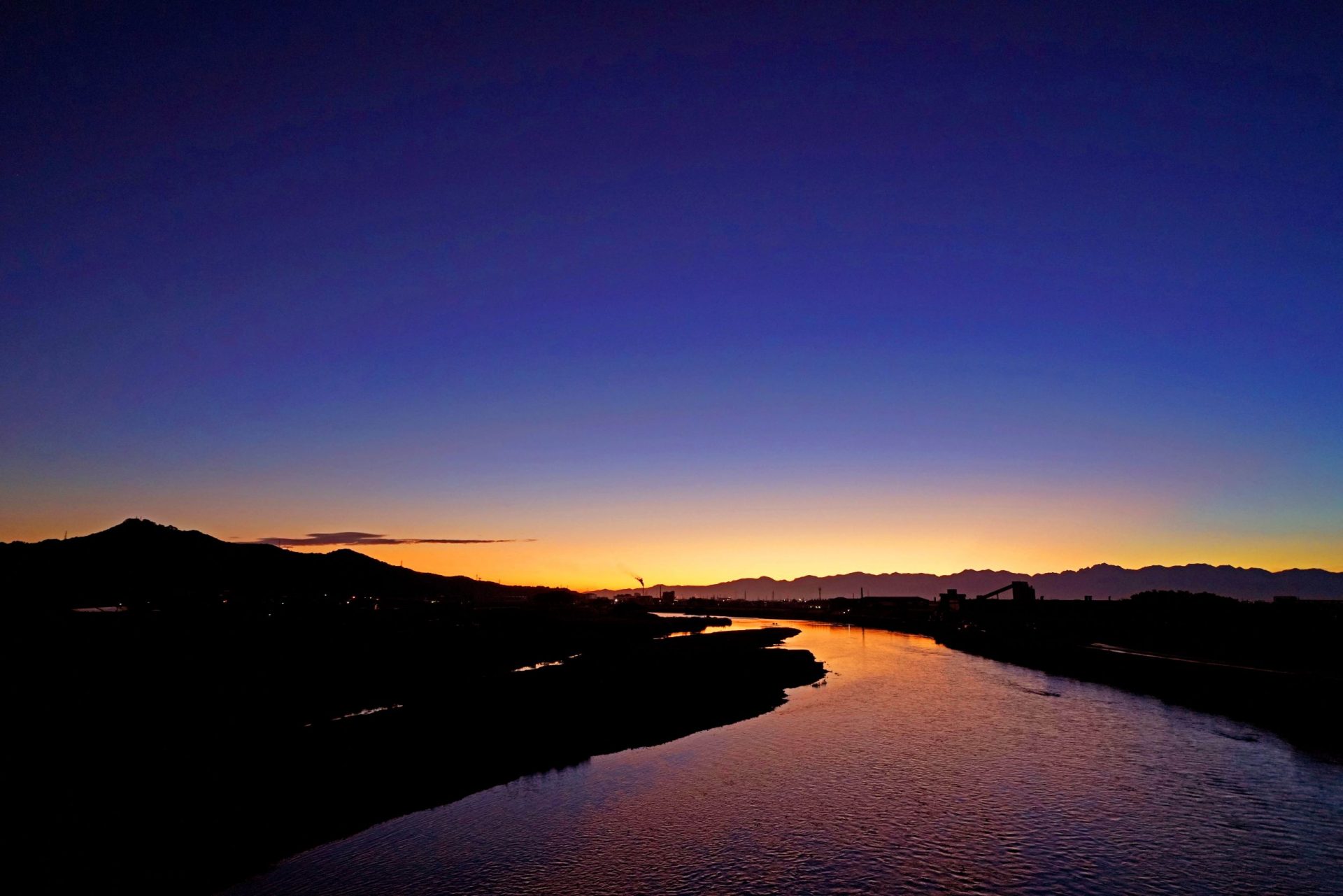
この歌で家持は、朝の寝床から起き上がるともなしに耳をすまし、射水川を漕ぎゆく船人の歌を遥かに聞いている。舟歌は漢詩に見られる題材であるものの、『万葉集』ではこれが唯一の例。(撮影 : 谷崎悦夫「夜明けの山河」)
In this poem, as Yakamochi wakes up, he hears from his bed a boatman singing while rowing on the Imizu River. Although ship songs are often used or referred to in classical Chinese poetry, this is the only example found in the Man’yōshū. (Photo : Etsuo TANIZAKI" Mountain rivers at dawn")
![万葉歌めぐりの旅[Man'yōshū Literary Pilgrimage]](https://www.manreki.com/manyo-songs/images/common/pic_logo.svg)



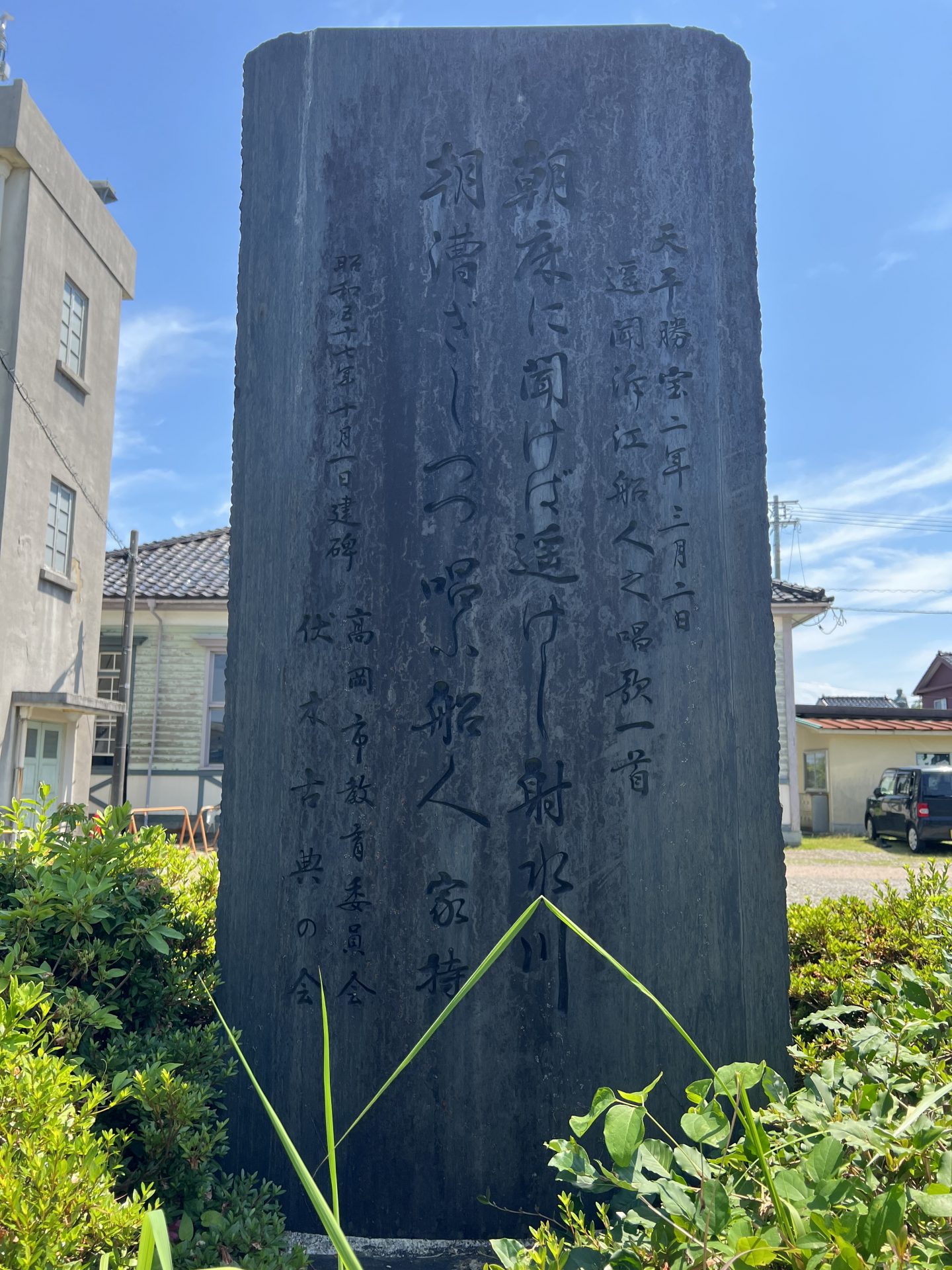
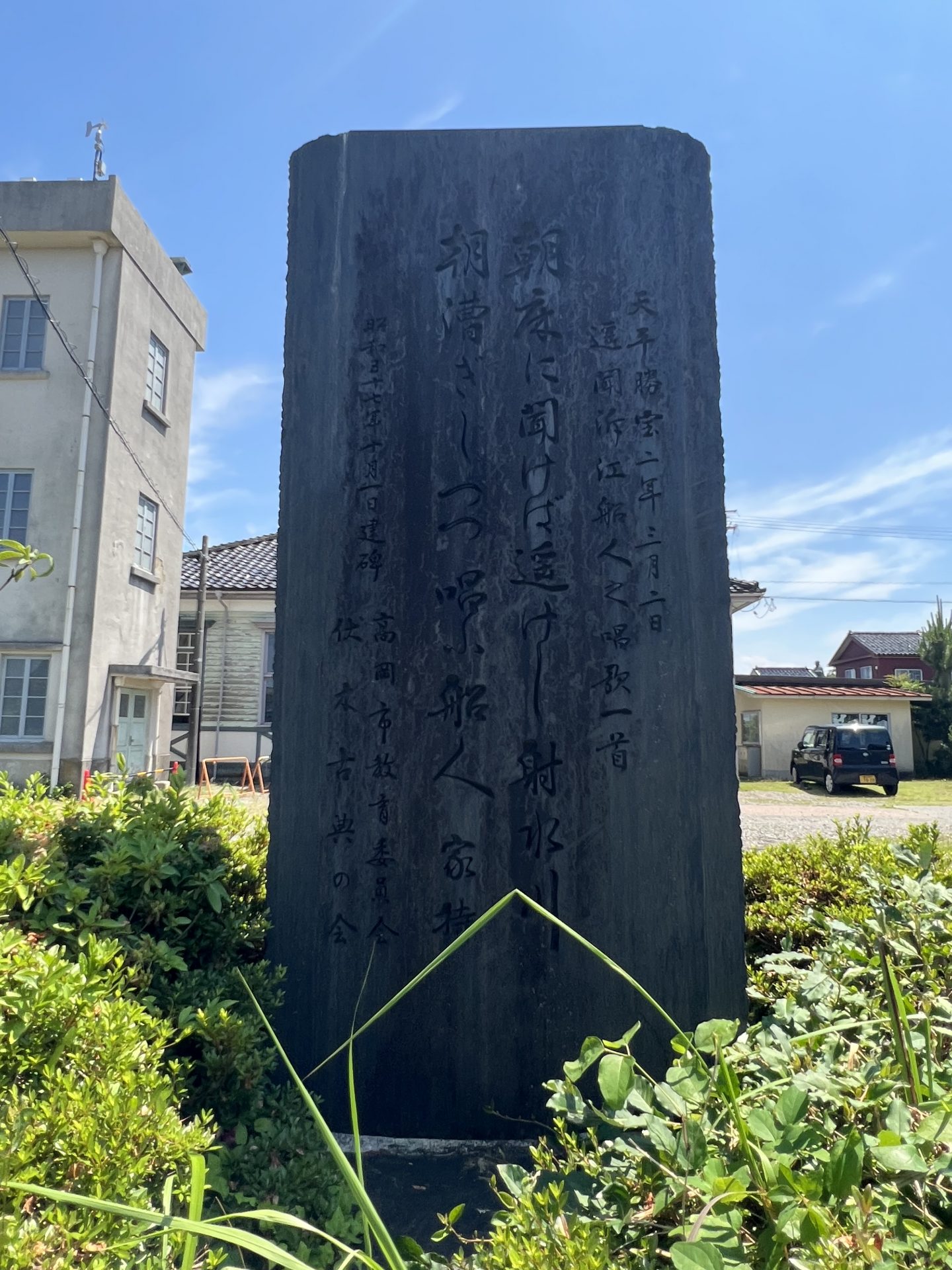
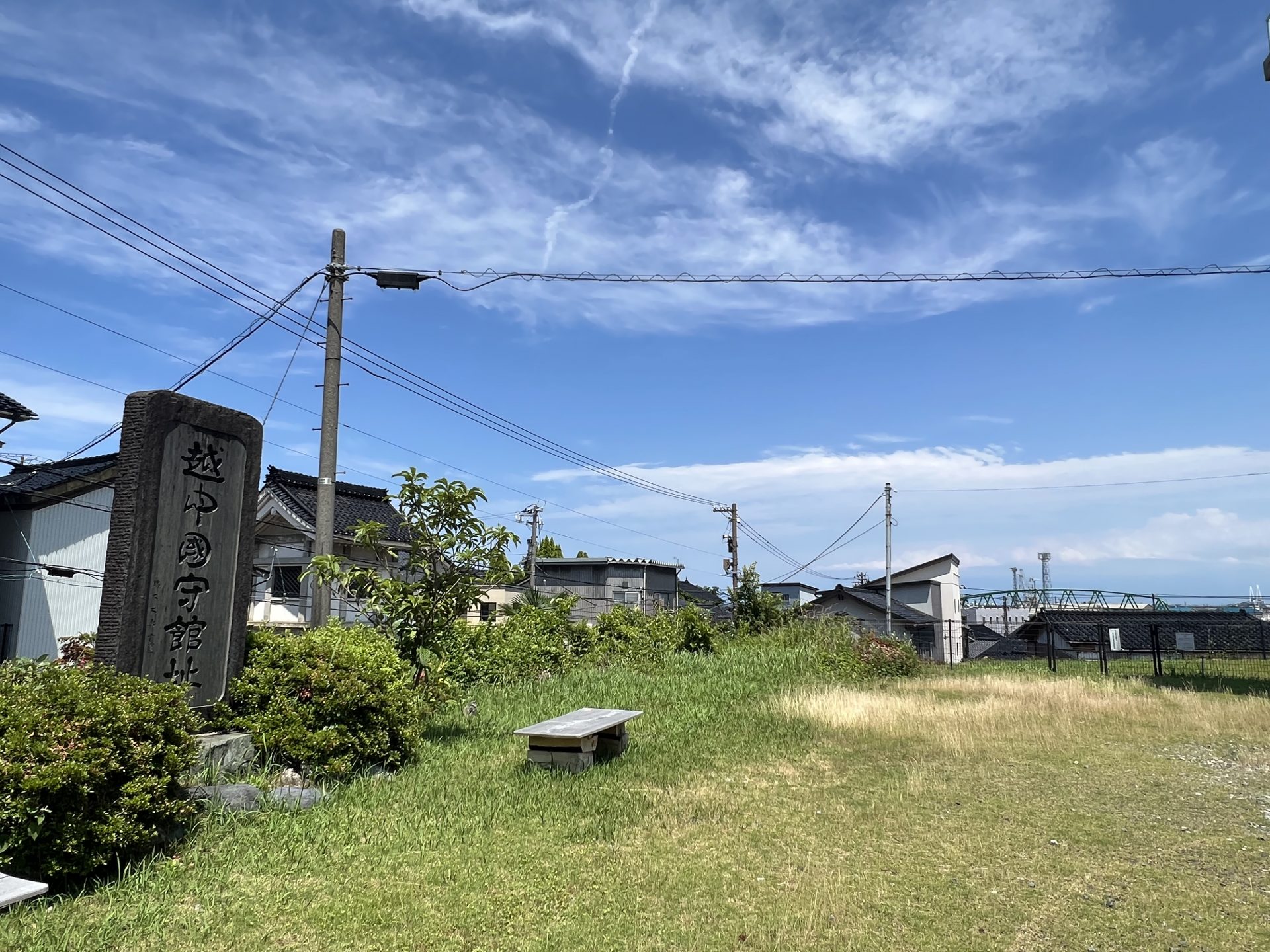
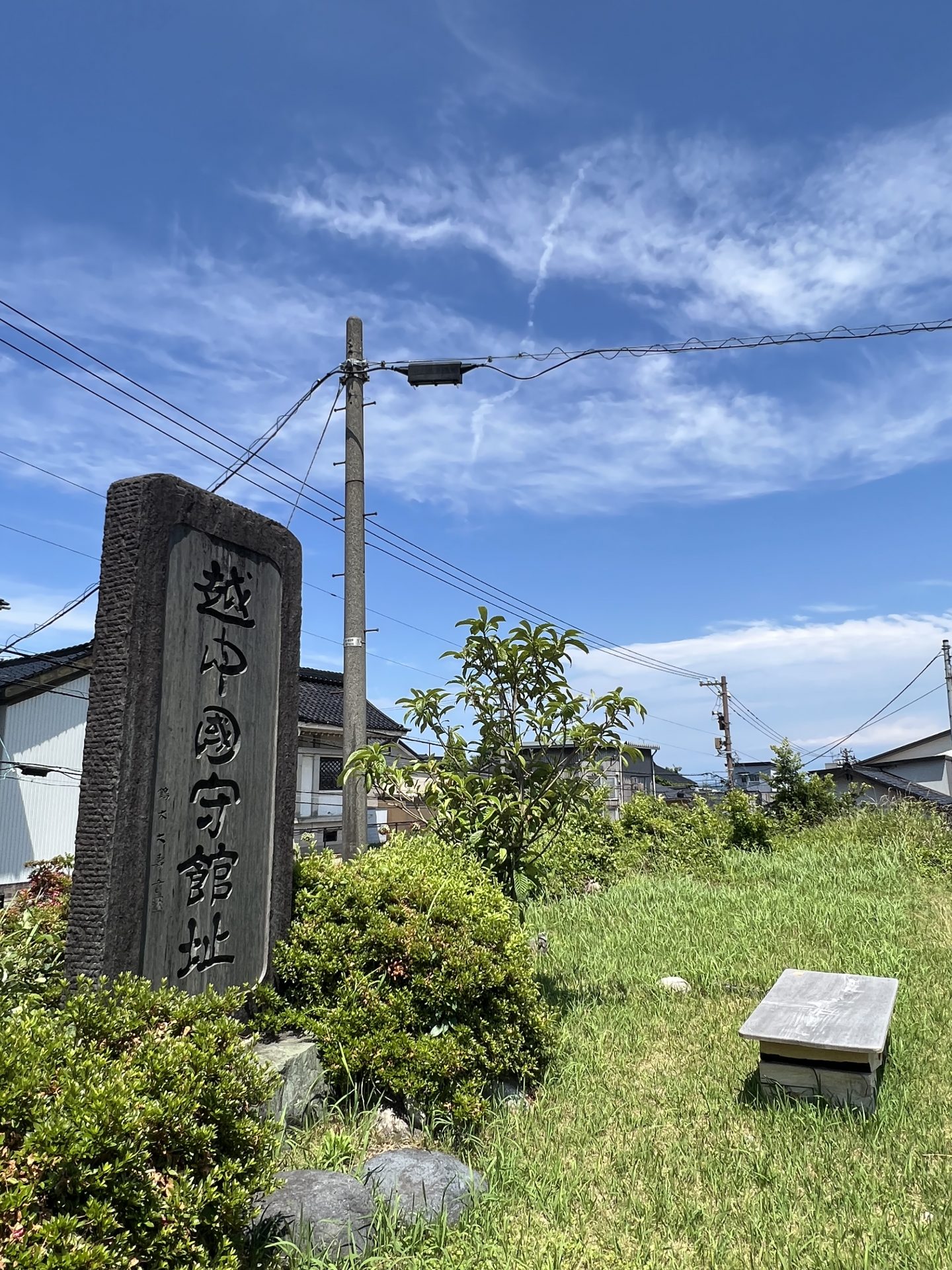



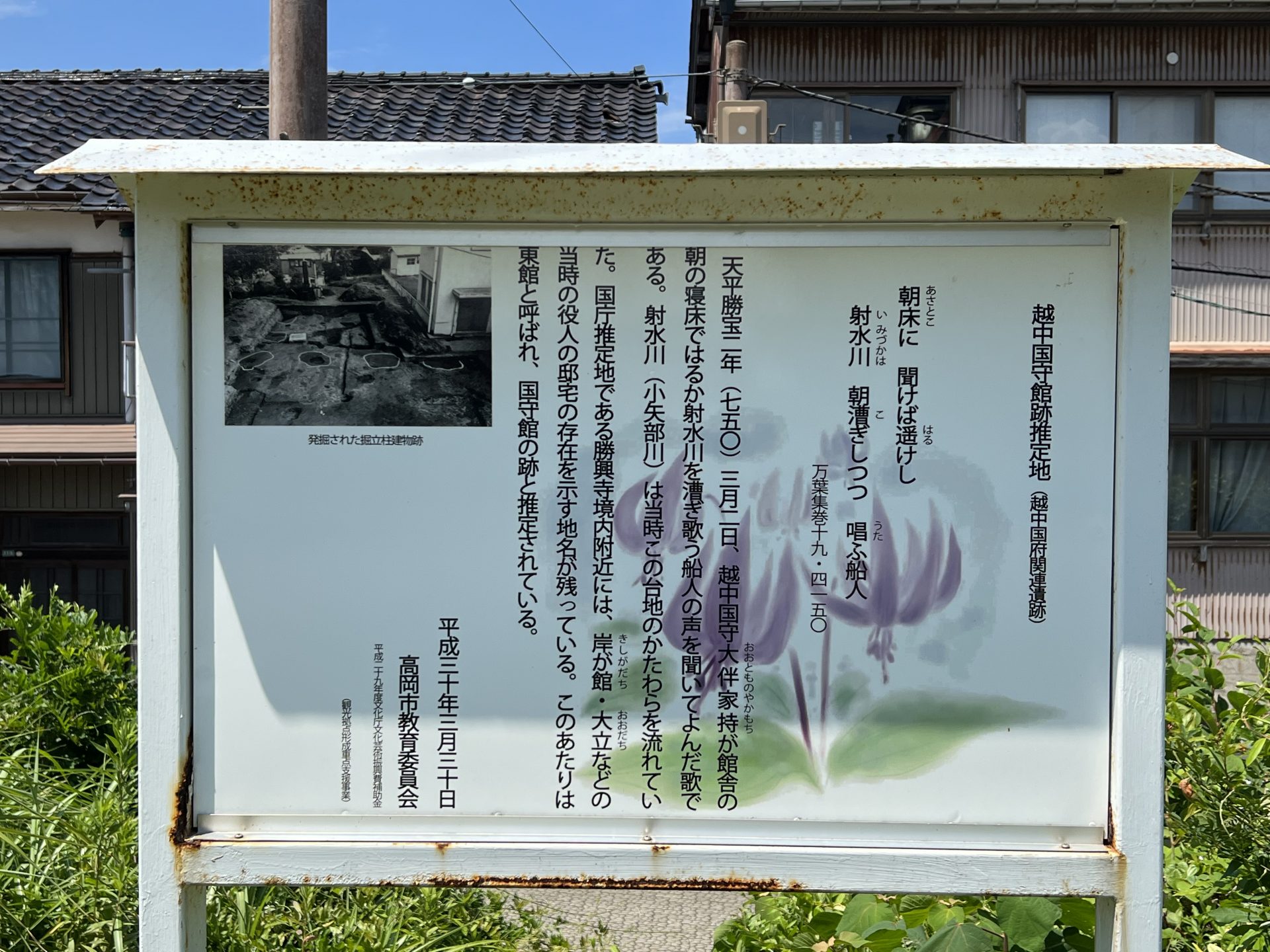

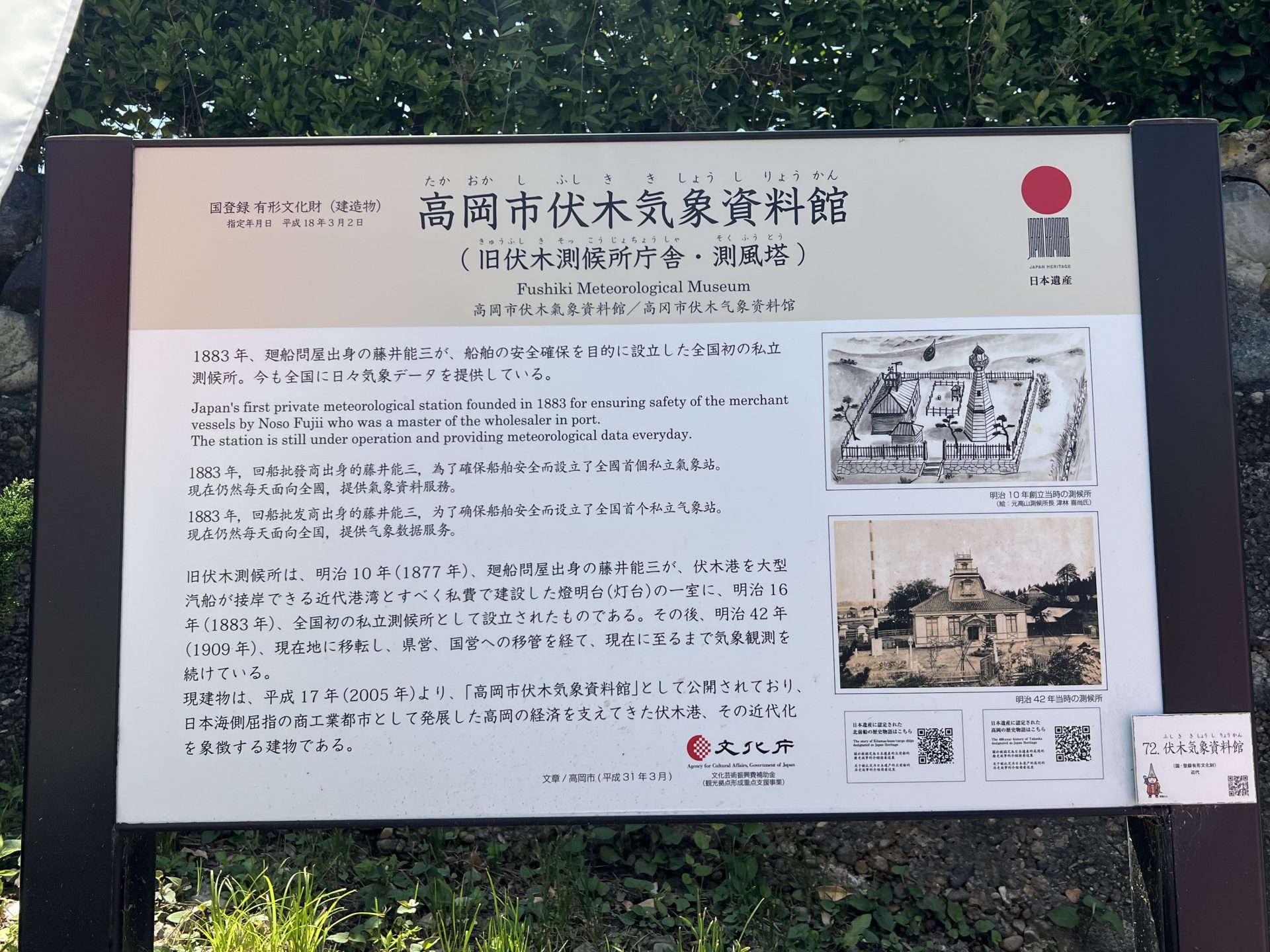
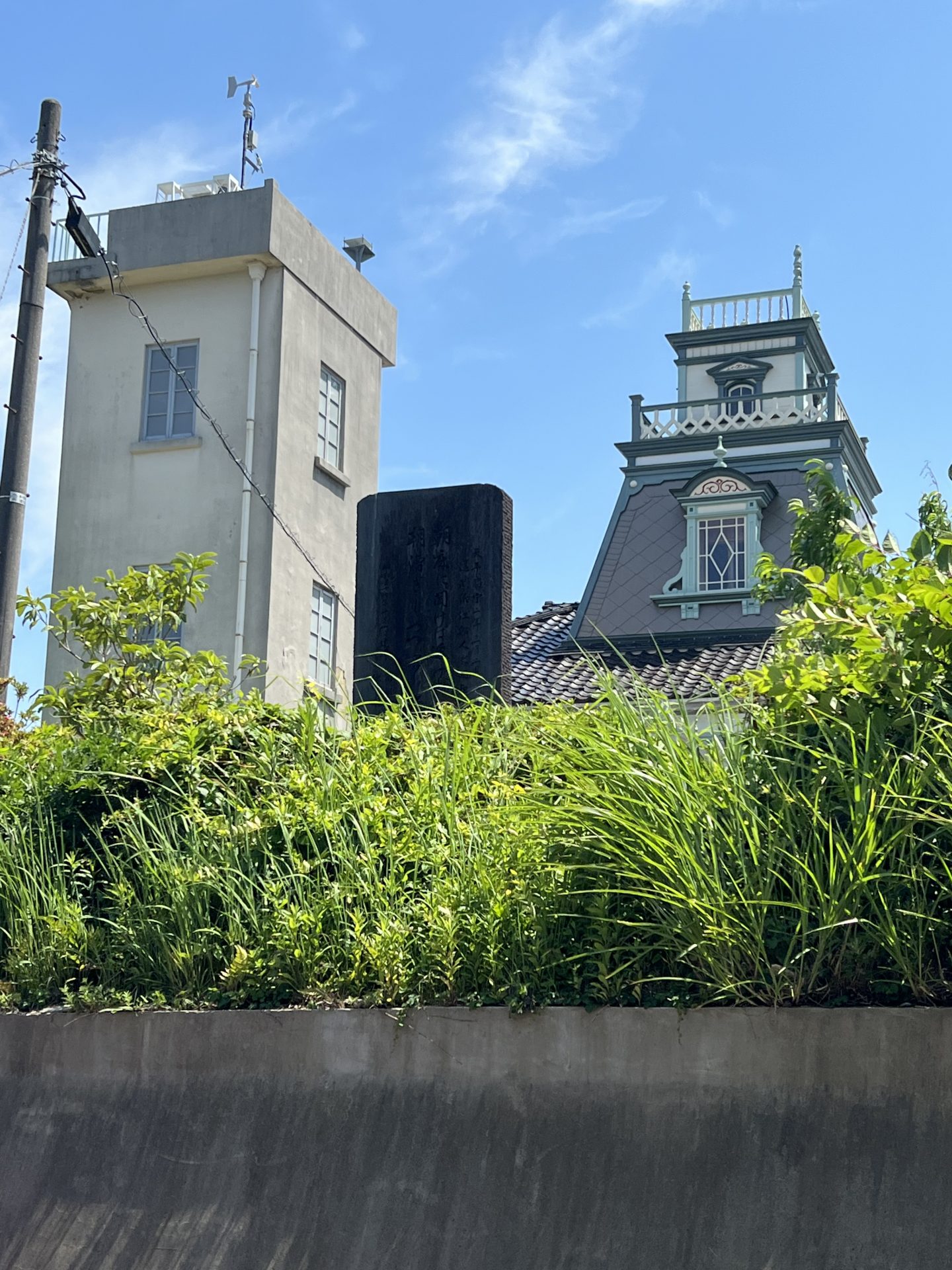




解説
Commentary
朝の射水川
Morning Imizu River
『万葉集』の4150番の歌。『万葉集』は、7世紀前半から8世紀後半にかけての約130年間の歌を収めた現存日本最古の歌集で、4500首余りの歌が収められている。この歌の作者は大伴家持(718?~785)、『万葉集』でも最も多くの歌を残す歌人である。
『万葉集』巻19の冒頭には、天平勝宝二年(750)三月一日~三日朝にかけて作られた十二首の歌が並ぶ。これらは「越中秀吟」と呼ばれ、家持の越中時代の歌の中でもとりわけ評価が高い。
この歌はその越中秀吟の最終十二首目。三月三日、すなわち上巳の朝の歌である。上巳とは中国から伝わった吉日。この日は曲水の宴(庭園内の小川で杯を流しながら詩歌を作る宴)が催され、詩が詠まれる。「越中秀吟」全体に漂う中国的な雰囲気は、それを目前に控えた気分の高まりを反映するものだっただろう。
この歌で家持は、朝の寝床から起き上がるともなしに耳をすまし、射水川を漕ぎゆく船人の歌を遥かに聞いている。舟歌は漢詩に見られる題材であるものの、『万葉集』ではこれが唯一の例。「聞けば遥けし」も詩語「遥聞」を訓読した語と考えられる。寝床で舟歌を聞きながら家持が思い浮かべた光景は、詩に詠まれるような中国の川の風景だったのかもしれない。詠われているのは状況描写に過ぎないが、この歌にはどこか寂然とした雰囲気が漂っている。
(解説 ピーター・J・マクミラン)
This is poem number 4150 of the Man’yōshū, the oldest existing collection of poetry in Japan. The Man’yōshū consists of over 4,500 poems and was compiled over a period of around 130 years, from the first part of the 7th century to the latter part of the 8th century. The author of this poem is Ōtomo no Yakamochi.
Book 19 of the Man’yōshū begins with twelve poems composed on the first to third day of the third month of 750. These poems are known as “Etchū Shūgin” (Splendid Poems of Etchū) and are some of the most highly regarded poems from Yakamochi’s time in Etchū. This is the twelfth poem of the series.
This poem was composed on the morning of the third day of the third month. On this day the Winding Stream Poetry Party (Kyokusui no En), often depicted in Chinese poetry, was held. During the party poems were read while the attendees floated sake cups (sakazuki) in the small stream in the garden. The Chinese motifs included in the Etchū Shūgin poems provide a build-up to the excitement for the upcoming festival.
In this poem, as Yakamochi wakes up, he hears from his bed a boatman singing while rowing on the Imizu River. Although ship songs are often used or referred to in classical Chinese poetry, this is the only example found in the Man’yōshū.
The scene evoked in Yakamochi’s mind by the sound of the ship song on the river outside may have been that of the rivers depicted in Chinese poetry. Although his poem only describes what he was hearing, rather than the words of the song itself, it is delicately elegiac and imbued with a sense of nostalgia and longing.
These waka poem stone monuments stand in the garden in front of the Meteorological Museum in Takaoka City, and in front of the Nomachi Elementary School.
(English Translation and Commentary by Peter Macmillan)